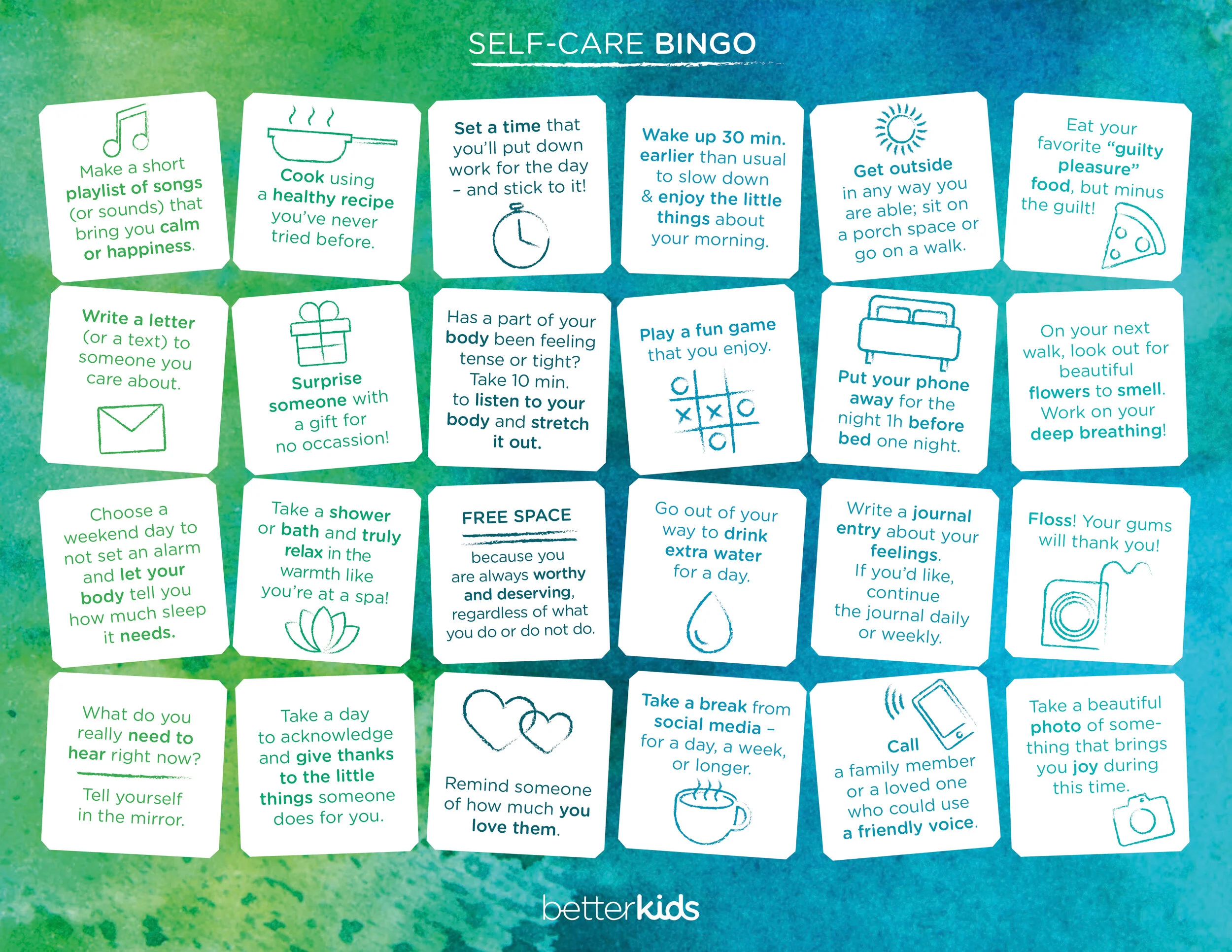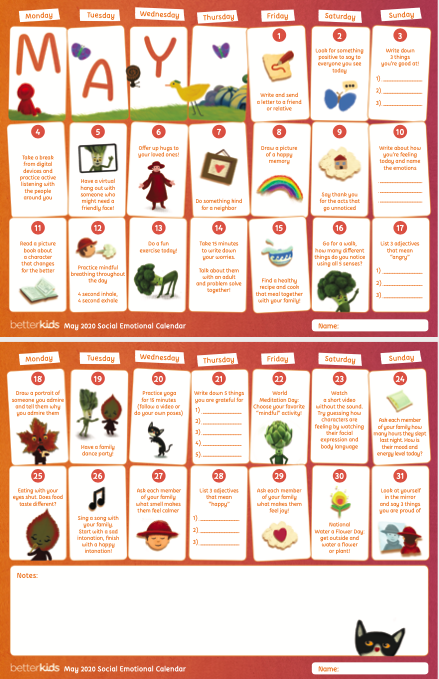At Better Kids we strive to help you - teachers and parents - support the social and emotional growth of the little humans you care about so deeply. We realize, though, that this is difficult work! Especially in times of uncertainty and change, caring for our children and students can place great demands on us and our own wellbeing. This is where self-care comes in. Your schedule is already busy and the last thing you need is yet another item on your list of to-do’s, but we can help you find small, easy ways throughout your busy days to better meet your own physical, emotional, and social needs.
What is self-care?
Self-care has come to be quite a buzz word, and is often misused to encompass acts of using high-end beauty products or attending expensive yoga classes. In reality, self-care is any activity we do to better the broad scope of our health. I mean, hey, there’s nothing wrong with an online shopping session, but we really don’t need a full wallet to practice self-care. Self-care is ensuring our basic needs are truly being met, because more often than not, we are letting more than one basic health need fall by the wayside.
Assessing your own self-care needs
Health is such a broad term and can be broken down into so many different components. No one definition does it. For now, let’s talk about health as being our physical, emotional, and social needs. As human beings we likely share a number of similar physical, emotional, and social needs, such as:
Food and drinks that nourish our bodies
Sleep to rest and heal our bodies and minds
Blood circulating through our bodies with the help of a beating heart
Some kind of supportive connection with others
While we do share some similar needs, no two people’s full list of needs will be exactly the same. For example, someone who experiences back pain may really need a daily spine stability exercise to meet their physical needs, while for someone else, this form of self-care is really not necessary. Alternatively, a more extroverted person may need frequent interactions to meet their social health needs, while a more introverted person may feel full social health with far fewer interactions. We all have different needs, so we recommend you take a moment to consider your own unique needs:
Physical: What do you need to help your body feel its best? When do various parts of your body not feel their best? What small changes can you make to ensure the various parts of your body are feeling their best?
Emotional: What are the things that distract you from the important parts of your life or make your emotions feel out of your control? Is there one emotion that feels to overpower your others? What small changes can you make to better cope with these situations or emotions?
Social: Who are the people around you that you care about or interact with? How do you treat them and how do they treat you in return? What small changes can you make to make these relationships more positive for you?
To give you some ideas of how to incorporate self-care into your days, we’ve created a Self-Care Bingo Board! Pick a few that speak to your unique physical, emotional, and social needs or try them all on for size. You can download and print, share yours and pass along on social media, or just take a look for ideas:
Self-care is a long journey, so rather than overwhelm yourself with a long list of self-care goals to better your health, focus on small changes and building habits. Find the health need that feels most urgent or pressing to you, and focus on it until you feel ready to address another need as well. You may take steps forward and a few steps back, but be forgiving of yourself! Celebrate the small victories and be proud of yourself for even thinking of your self-care. Learning to better address our health and needs is a never-ending process.
Self-care helps us adapt to change and navigate the unknown
While self-care is always a popular topic, it is especially important at times when everything is new and unknown. For example, if you just moved to a new city or to a foreign country things may feel out of our control and bring up a wide array of feelings for us. When I personally look at the messages around me, I see a lot of calling for productivity. We see those around us using the “extra free time” to pursue new hobbies, catch up on reading, or even learn a language! It can be overwhelming. Remember that change affects us all differently. Be gentle with yourself. Think about your health and your needs, rather than the endless list of things that you could be doing right now.
Trying to help your children or students practice self-care, too? We’ve got you. Check out our May calendar! For Mental Health Awareness Month, we’ve created 31 days of small Social Emotional Learning tasks for you and your child!
A prior version of this article was originally published on May 5, 2020.





